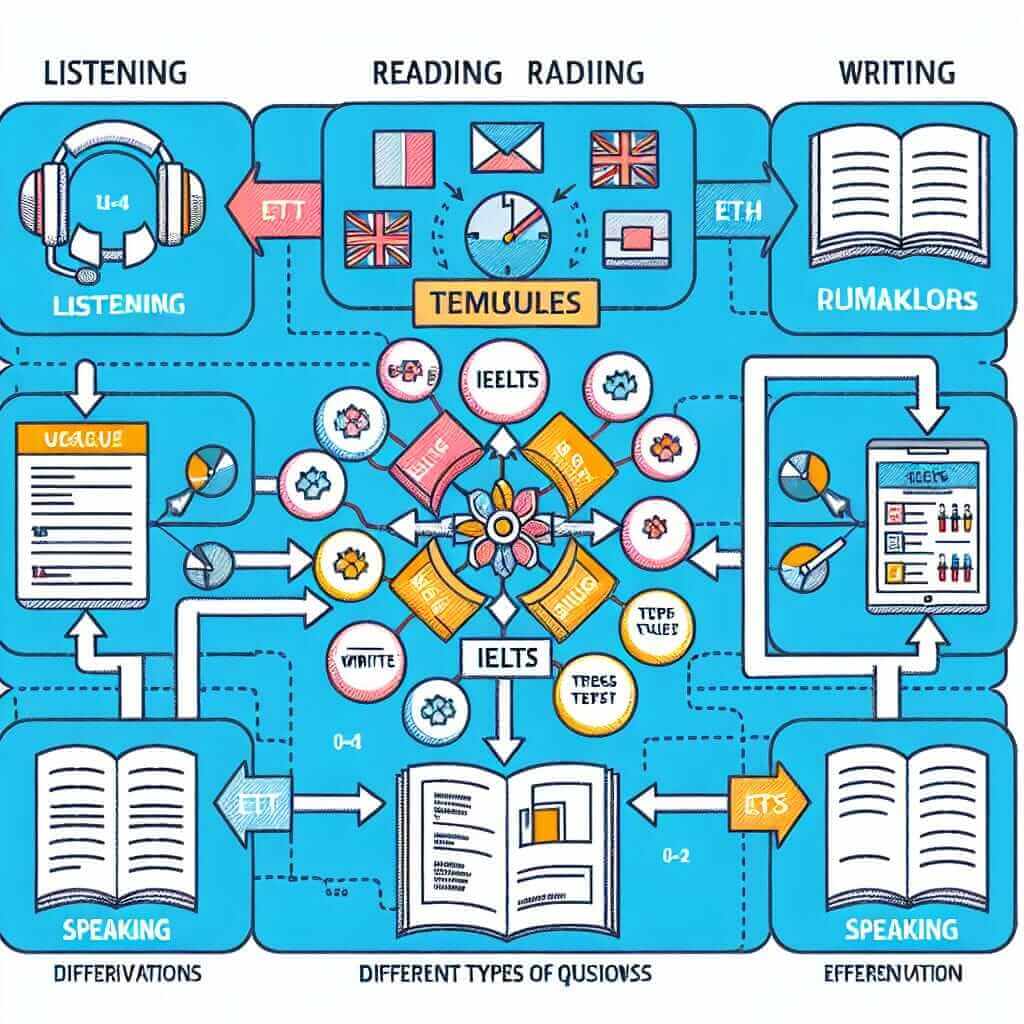The International English Language Testing System (IELTS) is a globally recognized English proficiency test that opens doors to academic and professional opportunities. Whether you’re aiming for higher education, immigration, or career advancement, understanding how to take IELTS effectively is crucial. This comprehensive guide, crafted from my 20 years of experience teaching IELTS, will equip you with the knowledge and strategies to excel in your exam.
Understanding the IELTS Exam
Before delving into preparation strategies, it’s essential to grasp the structure and components of the IELTS exam. The test assesses your English language skills across four modules:
-
Listening: This module evaluates your ability to comprehend spoken English, including conversations, lectures, and broadcasts.
-
Reading: The reading module measures your ability to understand different text types, such as articles, reports, and academic papers. You’ll need to demonstrate comprehension of main ideas, details, inferences, and vocabulary.
-
Writing: This module assesses your written communication skills. You’ll be required to write two tasks, often an essay and a descriptive or analytical piece based on visual information.
-
Speaking: The speaking module evaluates your fluency, pronunciation, grammar, vocabulary, and coherence in spoken English. It involves a face-to-face interview with a certified examiner.
You can choose between IELTS Academic or IELTS General Training, depending on your purpose for taking the test.

Effective IELTS Preparation Strategies
Preparing for the IELTS exam requires a focused and strategic approach. Here are proven techniques to maximize your chances of success:
1. Familiarize Yourself with the Test Format
Understanding the structure, question types, and time limits of each module is paramount. Obtain official IELTS practice materials, such as past papers, to gain firsthand experience with the exam format.
2. Enhance Your English Language Skills
Consistent exposure to English is vital. Engage in activities that develop your listening, reading, writing, and speaking abilities:
- Listening: Listen to English podcasts, news broadcasts, and documentaries. Practice note-taking and identifying key information.
- Reading: Read English newspapers, magazines, and books. Focus on comprehending the main ideas, supporting details, and vocabulary in context.
- Writing: Practice writing different text types, including essays, letters, and reports. Pay close attention to grammar, vocabulary, and sentence structure. Seek feedback from experienced teachers or tutors to refine your writing skills.
- Speaking: Engage in regular English conversations with native speakers or language partners. Practice expressing your ideas fluently, accurately, and coherently.
3. Develop Test-Taking Strategies
Mastering specific test-taking techniques can significantly impact your score:
- Time Management: Learn to manage your time effectively during the exam. Practice pacing yourself for each module to ensure you can complete all tasks within the allotted time.
- Understanding Instructions: Pay careful attention to all instructions provided for each task. Misinterpreting instructions can lead to lost marks.
- Keyword Recognition: Identify keywords in questions and passages to quickly locate relevant information.
- Skimming and Scanning: Develop effective skimming and scanning techniques to efficiently extract information from long reading passages.
4. Seek Professional Guidance
Consider enrolling in an IELTS preparation course or working with an experienced IELTS tutor. They can provide valuable insights, personalized feedback, and strategies tailored to your specific needs.
Example from IELTS Speaking Test
Let’s look at a typical IELTS Speaking Part 1 question:
Examiner: “Let’s talk about where you live. Do you live in a house or an apartment?”
Candidate: “I live in an apartment in the city center. It’s a modern building with great facilities.”
This response is adequate but could be enhanced with more detail and personal examples:
Improved Response: “I live in a spacious apartment on the third floor of a modern building in the city center. I enjoy living in the heart of the action, with easy access to shops, restaurants, and cultural attractions. The apartment itself has large windows that offer stunning views of the cityscape.”
Top Tips for IELTS Success
- Start Early: Don’t wait until the last minute to prepare. Allow yourself ample time to develop your skills and confidence.
- Practice Regularly: Consistent practice is key. Make IELTS preparation a part of your daily or weekly routine.
- Simulate Exam Conditions: Regularly take practice tests under timed conditions to acclimate yourself to the exam environment.
- Analyze Your Mistakes: Review your practice tests and identify areas for improvement. Focus on understanding your weaknesses and developing strategies to address them.
Conclusion
Successfully navigating the IELTS exam requires a combination of language proficiency, strategic preparation, and familiarity with the test format. By embracing a proactive and structured approach to your preparation, you can enhance your chances of achieving your desired IELTS score. Remember, consistent effort, expert guidance, and a positive mindset are your allies on this journey to IELTS success.